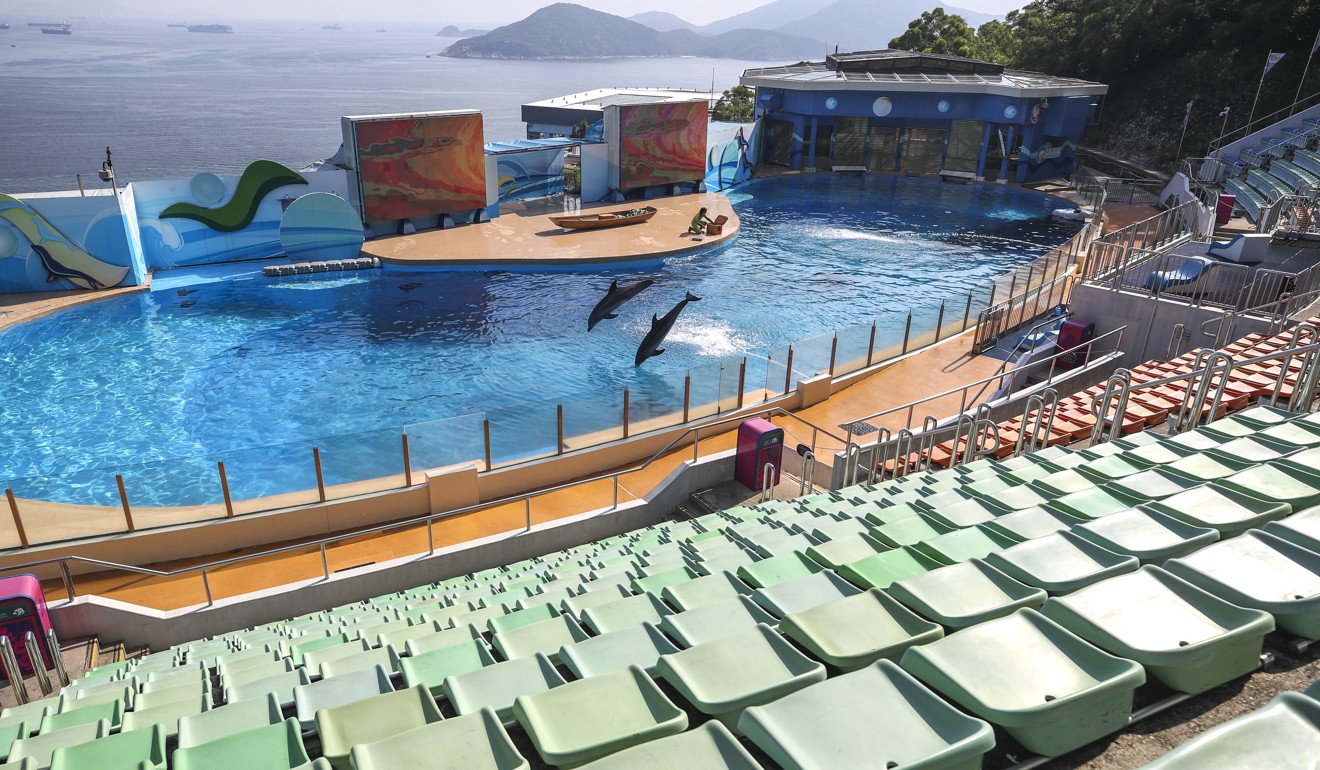
Hong Kong protests and Typhoon Mangkhut prove a perfect storm for Ocean Park as deficit more than doubles to US$72 million
- Post-storm repairs took park’s operating costs to HK$1.5 billion
- Visitor numbers have dropped as anti-government movement scares away tourists

Hong Kong resort Ocean Park has reported a widening deficit for the past financial year, largely caused by Typhoon Mangkhut, with ongoing civil unrest in the city also dimming its prospects.
Its deficit more than doubled to HK$557.3 million (US$72 million) in the year to June 30, from HK$236.5 million in the previous year, according to an annual report released on Wednesday.
The results did not reflect the impact of the tourism slump since July, as anti-government protests keep visitors away and add to the economic woes brought by the lingering US-China trade war.
During the financial year, revenue grew 2.9 per cent to HK$1.7 billion while the number of visitors to the park was slightly lower at 5.7 million, from 5.8 million previously.

The park said a “notable” rise in repairs and maintenance expenses required after the damage inflicted on facilities by the typhoon – which struck in summer 2018 – helped lift operating costs by 14 per cent to HK$1.5 billion.
“Ocean Park is facing fierce competition from the proliferation of theme parks in the region and an increasingly difficult market environment,” Leo Kung Lin-cheng, the park’s chairman, said.
“Despite cost pressures, it is mandatory for us to invest in new infrastructure and meticulously curated offerings to uplift the guest experience, and maintain the park’s attraction as an entertainment destination and a tourism hotspot.”
He said the park would continue to reinvent itself by stepping up hospitality services, education and conservation programmes.
The park had also faced challenges during the first half of this financial year. It revealed last week that the number of tour group visitors plunged 56 per cent, and individual visitors from mainland China and overseas slumped more than 60 per cent between July and October, compared with the same period last year.
Yiu Si-wing, who represents the tourism sector in the legislature, said that, regardless of external factors, the park needed an inside-out reinvention.
“Its positioning in the regional market needed a thorough upgrade even before the protests took place,” he said. “I am not talking about adding new features or enhancing programmes. It is about a sweeping change in its image, product offerings and positioning in the region.”
Set up in the 1970s, the park faces rising competition from theme parks across the border, namely Chimelong Ocean Kingdom in Hengqin, Zhuhai, which positions itself as a Monte Carlo of the East.
Ocean Park’s new HK$2.9 billion water park, known as Tai Shue Wan Water World, is scheduled to open next year, while completion of a Fullerton hotel and resort at the park is due in 2021.
The city has been caught up in increasingly violent civil unrest since June, which was sparked by the now-withdrawn extradition bill and escalated into a broader anti-government movement. It subsequently evolved into violence in tourist, commercial and residential districts such as Causeway Bay, Central, Tsim Sha Tsui, Yau Ma Tei, Mong Kok and Tseung Kwan O.
The tourism sector has taken a battering, with visitor arrivals down 43.7 per cent in October, year on year, to 3.31 million – the biggest drop since May 2003, with mainland visitor numbers down 45.9 per cent. More than 40 regions have issued warnings or alerts to travellers planning to visit Hong Kong.
Ocean Park’s rival, the Disneyland theme park on Lantau Island, has not fared any better. Last month, the resort said the turmoil will have cost it US$135 million in income by the end of this year. Last year, Disneyland reported a HK$54 million loss compared with HK$345 million in 2017.